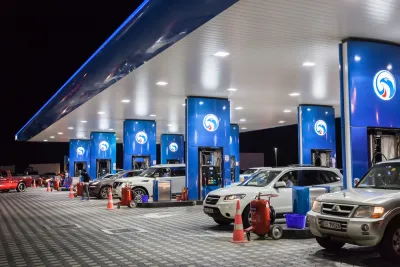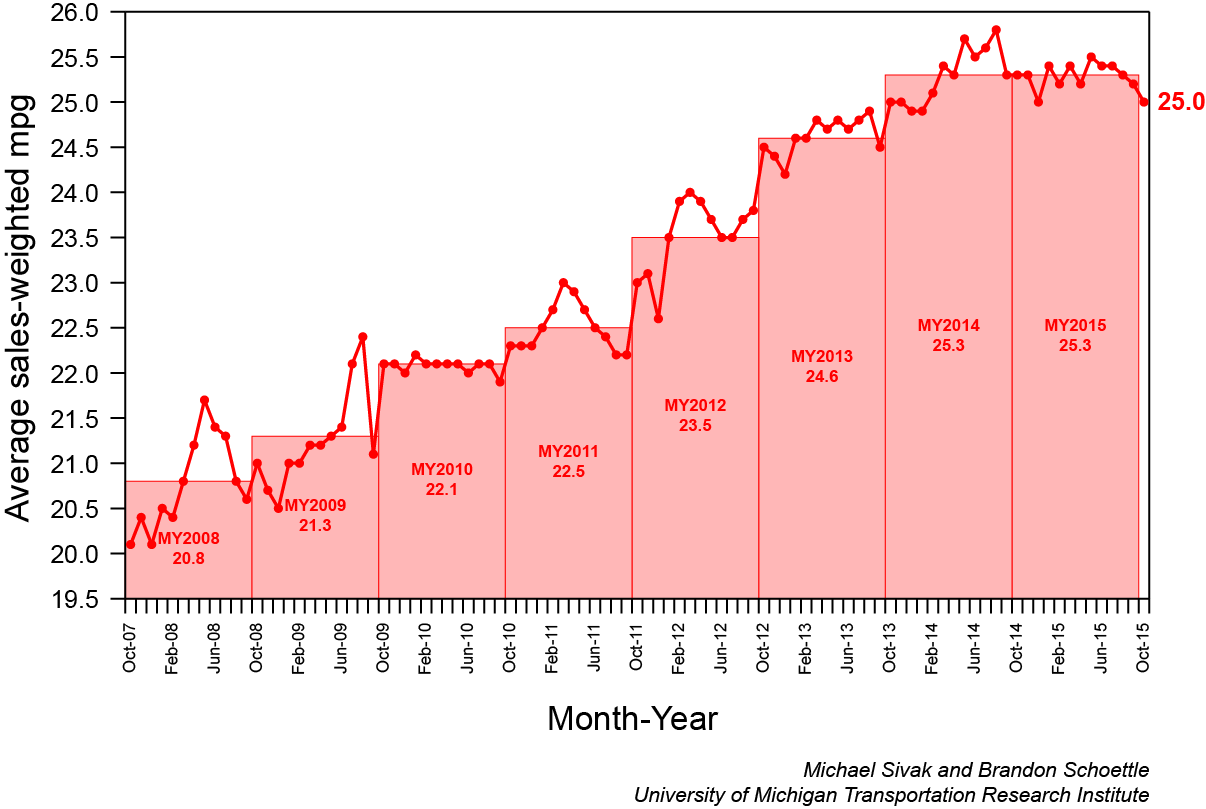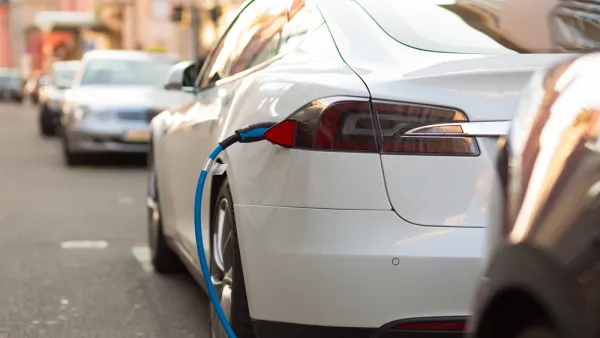New figures from the Federal Highway Administration show no abatement in increasing vehicle miles traveled (VMT). While low oil prices have been beneficial for the environment on the production end, it is wreaking havoc on the consumption side.

Low-priced oil played a major role in Royal Dutch Shell's decision in September to terminate Arctic oil exploration, their decision last month to end a huge oil sands development in Alberta, as well as being cited by President Obama on Friday as one reason to reject Transcanada Corp.'s application to build the 1,179-mile pipeline Keystone XL pipeline from Alberta to Nebraska:
"The pipeline would not lower gas prices for American consumers," stated the president. "The national average gas price is down about 77 cents over a year ago. It’s down a dollar over two years ago." [See related post].
However, low oil prices are producing opposing consequences on the consumption side by increasing demand for oil. Americans are driving more miles in less fuel-efficient vehicles and taking transit less often. AASHTO Journal reports on the latest federal mileage data, and they are cause to make OPEC cheer.
The Federal Highway Administration said its latest monthly "Traffic Volume Trends" report showed vehicle traffic on U.S. roadways reached 277.3 billion miles in August, a 2.3 percent gain from a year earlier and the most for any August on record.
That continues a trend of vehicles miles traveled growing on a year-over-year basis for 18 consecutive months and puts 2015 VMT on a pace to be the highest ever. The estimates include passenger vehicle, bus and truck travel.
While FHWA doesn't mention the correlation with low gas prices, Gas Buddy.com states it explicitly in their June 25 article: "A low fuel price environment clearly has jumpstarted new travel."
As for fuel efficiency, Dr. Michael Sivak, transportation researcher for University of Michigan Transportation Research Institute, has been reporting monthly on the fuel efficiency of vehicles purchased by consumers since 2007. Gas prices peaked in July 2014. The correlation is clear. From his Nov. 5 report:
The average fuel economy (window-sticker value) of new vehicles sold in the U.S. in October was 25.0 mpg—down 0.2mpg from September. This decline likely reflects the decreased price of gasoline in October, and the consequent increased sales of pickup trucks and SUVs. [Emphasis added].
Fuel economy is down 0.8 mpg from the peak reached in August 2014, but still up 4.9 mpg since October 2007 (the first month of our monitoring).
[Monthly updates found UMTRI Sustainable Worldwide Transportation]
The current oil market works against oil production that has high costs, but it is also increasing consumption. If "America is now a global leader when it comes to taking serious action to fight climate change," as President Obama proclaimed on Friday, he needs to recognize that notwithstanding increased fuel efficiency standards, low oil prices work against meeting his climate goals.
FULL STORY: FHWA Says Nation's Vehicle Mileage Continues Historic Climb for 18th Month

National Parks Layoffs Will Cause Communities to Lose Billions
Thousands of essential park workers were laid off this week, just before the busy spring break season.

Retro-silient?: America’s First “Eco-burb,” The Woodlands Turns 50
A master-planned community north of Houston offers lessons on green infrastructure and resilient design, but falls short of its founder’s lofty affordability and walkability goals.

Delivering for America Plan Will Downgrade Mail Service in at Least 49.5 Percent of Zip Codes
Republican and Democrat lawmakers criticize the plan for its disproportionate negative impact on rural communities.

Test News Post 1
This is a summary

Test News Headline 46
Test for the image on the front page.

Balancing Bombs and Butterflies: How the National Guard Protects a Rare Species
The National Guard at Fort Indiantown Gap uses GIS technology and land management strategies to balance military training with conservation efforts, ensuring the survival of the rare eastern regal fritillary butterfly.
Urban Design for Planners 1: Software Tools
This six-course series explores essential urban design concepts using open source software and equips planners with the tools they need to participate fully in the urban design process.
Planning for Universal Design
Learn the tools for implementing Universal Design in planning regulations.
EMC Planning Group, Inc.
Planetizen
Planetizen
Mpact (formerly Rail~Volution)
Great Falls Development Authority, Inc.
HUDs Office of Policy Development and Research
NYU Wagner Graduate School of Public Service




























